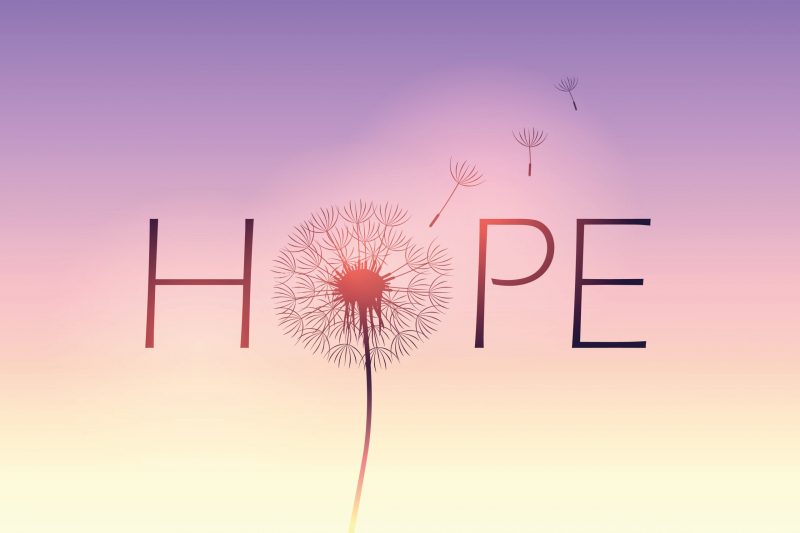The Value of Hope

by Marian Volkman, Senior TIR Trainer
- Is hope good or bad?
- What is its value?
- What happens if we don’t have any hope left?
- Where can we find some more when our supplies of hope are running low?
Probably the only circumstance where we would say that hope is “bad” is when we see that hope as unfounded, overly optimistic, and unrealistic. It’s usually someone else’s hope we are talking about then, is it not?
On the other hand, as we note from Dr. Gerbode’s quotation in this issue, hope precedes intention. If we truly have no hope, we will not bother to intend anything, as what is the point? Hope allows us to invest ourselves and our energy into plans. projects, and indeed, life itself. It gets us out of bed in the morning with a greater or lesser degree of optimism that we will be able to accomplish something worthwhile and feel satisfied.
It’s all too easy to think of things that can blunt our hope. Losses, failures, and people telling us that our dreams are unrealistic top the list. Let us consider the issue of “unrealistic” for a moment. For example: making a living as an artist, going to college when no one in your family ever has done so, building a pyramid in ancient times, wanting to be an astronaut, all of those could be called unrealistic. In fact, some of the greatest human accomplishments, the stories that inspire us, come from people who refused to be “realistic”. That reveals hope as a potent driver of getting things done.
What, however, if we find ourselves too low on hope to make an effort?
Conventional wisdom for many centuries told us that the best thing to do when something bad happened was to forget about it. How well did that work? If it were that easy to forget painful events, the world would be a different place.
In fact, we find that if we are given a safe and secure space and time in which to review past painful events, we can indeed “come out the other side”. We have not made the past disappear, but we have taken away its power to hurt us. With an expert guide – a facilitator – who does not get in our way, but rather holds the space, points us in the right direction, and lets us do the work, we find ourselves dismantling that which has held us captive. Hope resurges. Colors seem brighter. Life becomes more “live-able”, rewarding and fun.
___________________________________
Traumatic Incident Reduction and all the other Applied Metapsychology techniques give us the means to address all sort of issues effectively.
For further reading on the subject of hope see Dr. Gerbode’s article On the Nature of Hope
To benefit from Applied Metapsychology, see:
More about eNotes:
- Read more eNotes
 Subscribe to explore how you can change your life for the better. It’s free!
Subscribe to explore how you can change your life for the better. It’s free!
(You will get one message every two months)
